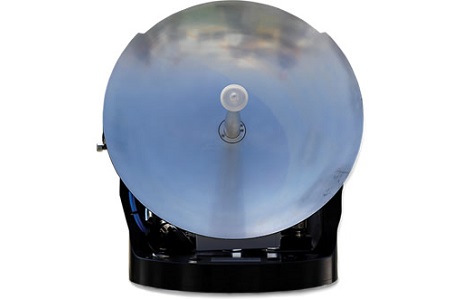 Spacecom, the satellite services and solutions provider and owner-operator of the AMOS satellite fleet, and Orbit Communication Systems Ltd., a global provider of airborne communications solutions, have announced the completion of a series of performance tests of Orbit’s MPT30 and MPT46 multi-purpose airborne satellite terminals. The systems successfully completed the trials via Spacecom’s most advanced and powerful AMOS-17 digital satellite’s Ka-band.
Spacecom, the satellite services and solutions provider and owner-operator of the AMOS satellite fleet, and Orbit Communication Systems Ltd., a global provider of airborne communications solutions, have announced the completion of a series of performance tests of Orbit’s MPT30 and MPT46 multi-purpose airborne satellite terminals. The systems successfully completed the trials via Spacecom’s most advanced and powerful AMOS-17 digital satellite’s Ka-band.
Orbit’s MPT30 terminal delivered a 140 Mbps+ forward link and a 40 Mbps+ return link. Its MPT46 terminal was delivered and a 50 Mbps+ return link with ample fade margins. The MPT terminals maintained uninterrupted connectivity to the network during all flight simulation phases tested. The achieved data rates enable high-speed, high-resolution video and data in real-time from multiple onboard sensors.
Orbit’s modular, multi-role MPT30 and MPT46 terminals operate in both commercial and military Ka-band utilising compact 30 cm or 46 cm antennas. The fully integrated 3 Line Replaceable Units (LRUs) terminal consists of a RF antenna assembly (including all RF components), a Ka-band Power Supply Unit (KPSU) and a Modem Unit, making them among the easiest to install and service while located at the avionics bay, on the fuselage or tail-mounted, supporting a variety of mission-critical platforms, which includes Mission Aircraft, Unmanned Airborne Vehicles (UAVs) and Rotary Wing platforms.
On-The-Move requirements have been an integral part of the AMOS-17’s specific satellite’s design. Its steerable Ka-band spot beams provide ‘coverage-on-demand,’ offering users a ‘centre of the beam’ connectivity via manual or automated beam steering. keeping the designated platform in the beam’s centre enables the customer to receive the highest possible radiated power by using compact terminals, on top of the powerful 1-1,000MHz bi-directional spot beam capacity. This capability is extremely useful when high-capacity data and video connectivity are needed during the fast deployment of airborne terminals.
AMOS-17 is the most advanced digital HTS satellite over Africa and the Middle East. The satellite’s cross-beam and cross-band capabilities deliver a new level of operational flexibility enabling multiple configurations of hub and remotes across continents. Its extensive C-Band and Ka-band HTS capabilities and Ku-band, maximize throughput and spectral efficiency.
The steerable Ka beams enable customers to direct its required service anywhere in Africa, the Middle East, Europe and Central Asia.
Commenting on the development, Ofer Asif, SVP of business development, Strategy and Marketing at Spacecom, said: “With the takeoff of exciting and sophisticated airborne connectivity, Spacecom’s advanced AMOS-17 satellite meets our customers’ needs for top performance, uninterrupted and extensive on-demand coverage. Working with the Orbit teams expands even further Spacecom On-The-Move offering, paving the way for innovation and cutting-edge solutions to enable greater value to the industry.”
Daniel Eshchar, CEO of Orbit, commented: “This cooperation with Spacecom is yet another milestone in Orbit’s strategy to further extend its collaborations with leading organisations around the world. We are proud to pass the recent trials successfully, and to have another proof for Orbit’s technological advancement by achieving high data rates with our compact and powerful terminals.”












Add Comment